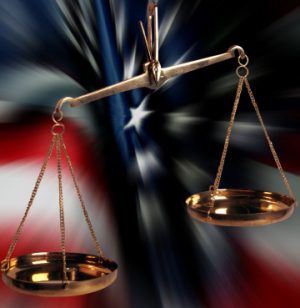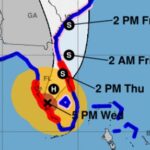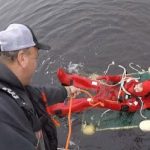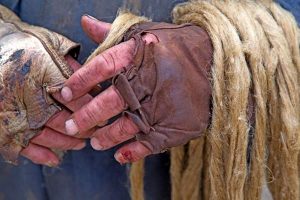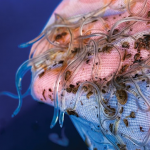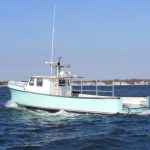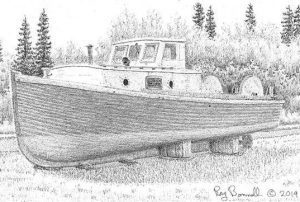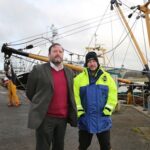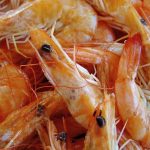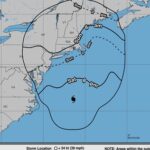Tag Archives: not guilty
Commercial Fisherman in mutilated crab case found not guilty
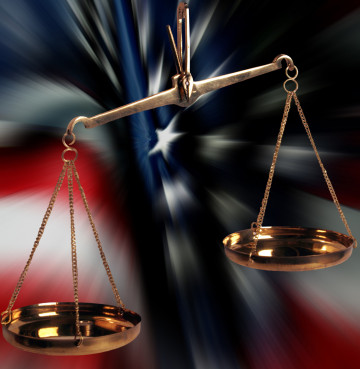 Judge Thomas Nave found commercial fisherman Charles Blattner, 47, not guilty of the fishing violation that an Alaska Wildlife Trooper cited Blattner for on Feb. 6. According to a trooper dispatch report, Trooper Scott Bjork found Blattner on board a vessel in Gastineau Channel with 11 Tanner crab disfigured in a way that allegedly prevented the trooper from determining their true size. Blattner appeared in court March 4 to pay the citation, according to court notes. After discussing the matter and making it clear he disagreed with the trooper’s findings, Blattner decided to take his case to trial. Read the rest here 10:07
Judge Thomas Nave found commercial fisherman Charles Blattner, 47, not guilty of the fishing violation that an Alaska Wildlife Trooper cited Blattner for on Feb. 6. According to a trooper dispatch report, Trooper Scott Bjork found Blattner on board a vessel in Gastineau Channel with 11 Tanner crab disfigured in a way that allegedly prevented the trooper from determining their true size. Blattner appeared in court March 4 to pay the citation, according to court notes. After discussing the matter and making it clear he disagreed with the trooper’s findings, Blattner decided to take his case to trial. Read the rest here 10:07
Jury acquits Cushing lobsterman of gun threat against two men
 ROCKLAND, Maine — A Knox County jury deliberated for 20 minutes Wednesday morning before finding a Cushing lobsterman not guilty of criminally threatening two men in another boat. But during his testimony Tuesday, Jones said he has had to deal with harassment and threats from Yeaton family members for 15 years and claimed the state has not done anything to help. Read more here 23:39
ROCKLAND, Maine — A Knox County jury deliberated for 20 minutes Wednesday morning before finding a Cushing lobsterman not guilty of criminally threatening two men in another boat. But during his testimony Tuesday, Jones said he has had to deal with harassment and threats from Yeaton family members for 15 years and claimed the state has not done anything to help. Read more here 23:39
At What Cost, Justice – A Pyrrhic Victory? By Sean McKeon
 On November 25, 2013 Federal District Court Judge Terrence W. Boyle1 ruled that Willie R. Etheridge III and Mark Cordeiro, two men from North Carolina, were not guilty of finning sharks as presumed under a federal fishing law prohibiting shark fin-to-carcasses ratios in excess of 5%. (Shark Finning Prohibition Act) The case is interesting not only because of what it produced by way of the district court’s decision, but also, and perhaps more importantly, because of the long history that ultimately spawned the government’s prosecution of these particular North Carolinians and the political environment in which it occurred.
On November 25, 2013 Federal District Court Judge Terrence W. Boyle1 ruled that Willie R. Etheridge III and Mark Cordeiro, two men from North Carolina, were not guilty of finning sharks as presumed under a federal fishing law prohibiting shark fin-to-carcasses ratios in excess of 5%. (Shark Finning Prohibition Act) The case is interesting not only because of what it produced by way of the district court’s decision, but also, and perhaps more importantly, because of the long history that ultimately spawned the government’s prosecution of these particular North Carolinians and the political environment in which it occurred.
The highly politicized agencies of the federal government are most to blame here, in this case National Marine Fisheries Service (NMFS) and its parents National Oceanic and Atmospheric Administration (NOAA), and the U.S. Department of Commerce. For an industry accustomed to bad news and never ending harassment by the very agency established to promote and protect it, the temptation might be to view this court victory in a vacuum and attach far too much optimism to its outcome. While there is certainly cause for celebration, it is important to understand the historic underpinnings of this case and the devastating impact federal agencies often have on the private sector when left unchallenged and undisciplined by those charged with their oversight, i.e. members of Congress and, in this case, the Administrative Law Court System (ALC).
Read the article here 19:54







